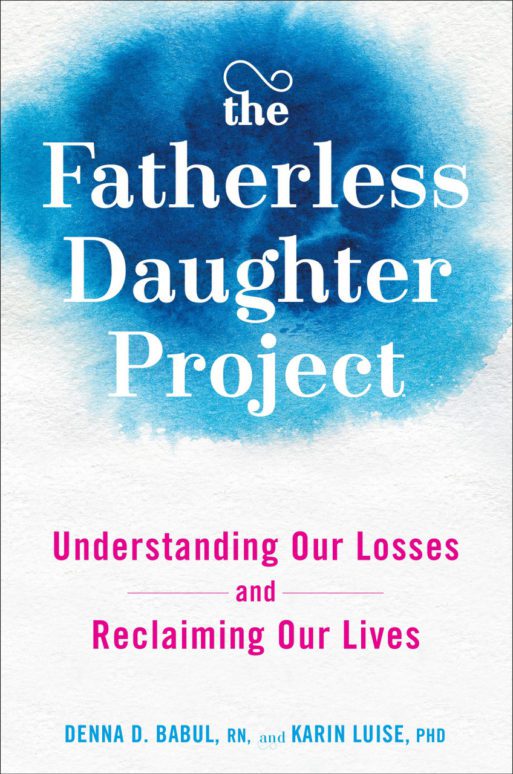 Building on interviews with more than 5,000 women who have lost their fathers due to death, divorce, neglect or abandonment, authors Denna Babul, R.N., and Karin Luise, Ph.D. examine the effects of that very particular loss in their moving book “The Fatherless Daughter Project.” The authors draw on both their personal experiences and professional expertise to share tools for healing. They also provide insight into the lives of thousands of women who continue to be affected by the loss of their fathers years after the loss occurred. They stress that each woman has a unique story with unique manifestations. Yet there are some common threads that bind the experiences of fatherless daughters.
Building on interviews with more than 5,000 women who have lost their fathers due to death, divorce, neglect or abandonment, authors Denna Babul, R.N., and Karin Luise, Ph.D. examine the effects of that very particular loss in their moving book “The Fatherless Daughter Project.” The authors draw on both their personal experiences and professional expertise to share tools for healing. They also provide insight into the lives of thousands of women who continue to be affected by the loss of their fathers years after the loss occurred. They stress that each woman has a unique story with unique manifestations. Yet there are some common threads that bind the experiences of fatherless daughters.
The gift of a book like this is that it validates those commonalities. Then it offers tools for healing once the reader has identified the destructive patterns in her life. The book also takes care to highlight the resilience and successes of women who carry the weight of this loss.
Each of the authors identifies as a fatherless daughter. Babul lost her father due to divorce and early death. (Her father was killed, though it’s not known why or by whom.) Luis lost her dad due to divorce, adoption and family dysfunction.
The authors create a tone of solidarity and deep understanding through the tender way they invite other fatherless daughters to join them in processing the effects of the absence. Research shows that over half of the best friends of fatherless daughters are also fatherless. That shared tragedy creates a unique empathetic bond.

Credit: fatherlessdaughterproject.com
The book spends quite a bit of time exploring the different ways the loss of a father can happen. Thus, there is a great deal of information for those whose fathers have died. The authors specifically address the consequences of foreseen versus sudden death, suicide and fathers who died violently.
“The Fatherless Daughter Project” also includes exercises to encourage self-reflection and the transformation of insights uncovered into growth. It includes tips for coping when you miss your dad. It also has tips for claiming your capacity for resilience. Finally, it offers tips for changing thought patterns and for recognizing the gifts your loss has given you — strength, intuition, compassion, a whole host of coping skills and deeper self knowledge. For those who belong to what Babul and Luise call the sisterhood of fatherless daughters, this book is a mine of wisdom, validation and encouragement.

 ”The Fatherless Daughter Project: Understanding Our Losses and Reclaiming Our Lives” by Denna Babul, R.N., and Karin Luise, Ph.D
”The Fatherless Daughter Project: Understanding Our Losses and Reclaiming Our Lives” by Denna Babul, R.N., and Karin Luise, Ph.D


 Recovering Cremation Remains After the Los Angeles Fires
Recovering Cremation Remains After the Los Angeles Fires
 “As Tears Go By” by Marianne Faithfull
“As Tears Go By” by Marianne Faithfull















